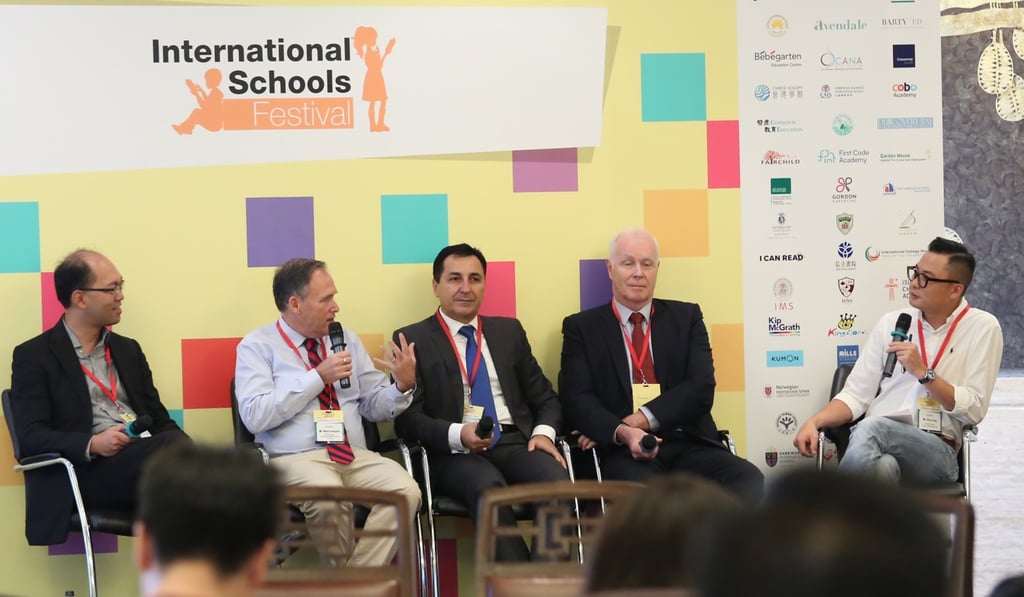Bridging the digital gap with tech-smart teens is a balancing act
Students, parents and teachers must work together to set rules on the amount of time spent on smartphones and social media to ensure youngsters are responsible users

While there is no turning back the clock on how children engage with technology – usually through their smartphones – parents and schools need to work together to promote better understanding of the benefits and risks that technology tools such as social media can involve.
“The use of smartphones and the amount of time spent using social media probably causes more arguments between parents and their children than any other topic,” said Mark Hemphill, head of the Australian International School Hong Kong and one of the panellists discussing “Dealing with digitally savvy teens” at the International Schools Festival, held by the Post on Sep 15, 2018.
Hemphill said one of his prime concerns is the frustration that students feel due to the disconnect of always being connected to the internet outside school, but subject to rules preventing them from using their smartphones while in school. He suggested the problem often lies in a lack of guidance over the use of smartphones outside school.
“We need to find ways for parents, schools and students to work together to bring about a better balance,” said Hemphill.
The use of smartphones and the amount of time spent using social media probably causes more arguments between parents and their children than any other topic
He explained while parents usually view technology as “something extra” to be used to achieve an objective, students see the use of smartphones and technology as their “default” solution.
Moderated by Ginn Fung, education editor at the Post, fellow panellists Dr Dannis Au, directly elected parent governor at the English Schools Foundation, David Baird, head of school, Canadian International School of Hong Kong, and Dr Daniel Churchill, associate professor at the Division of Information and Technology Studies, faculty of education, the University of Hong Kong, agreed that while technology plays a vital role in education, the positive or negative effects of online activities outside school depend on the type of media, the type of use, the amount and extent of use, and the characteristics of the individual child.

With jobs set to become increasingly dependent on the use of technology, the panellists agreed that schools would be failing in their duty if students were not fully prepared and “tech-savvy” to embrace the opportunities they will encounter.